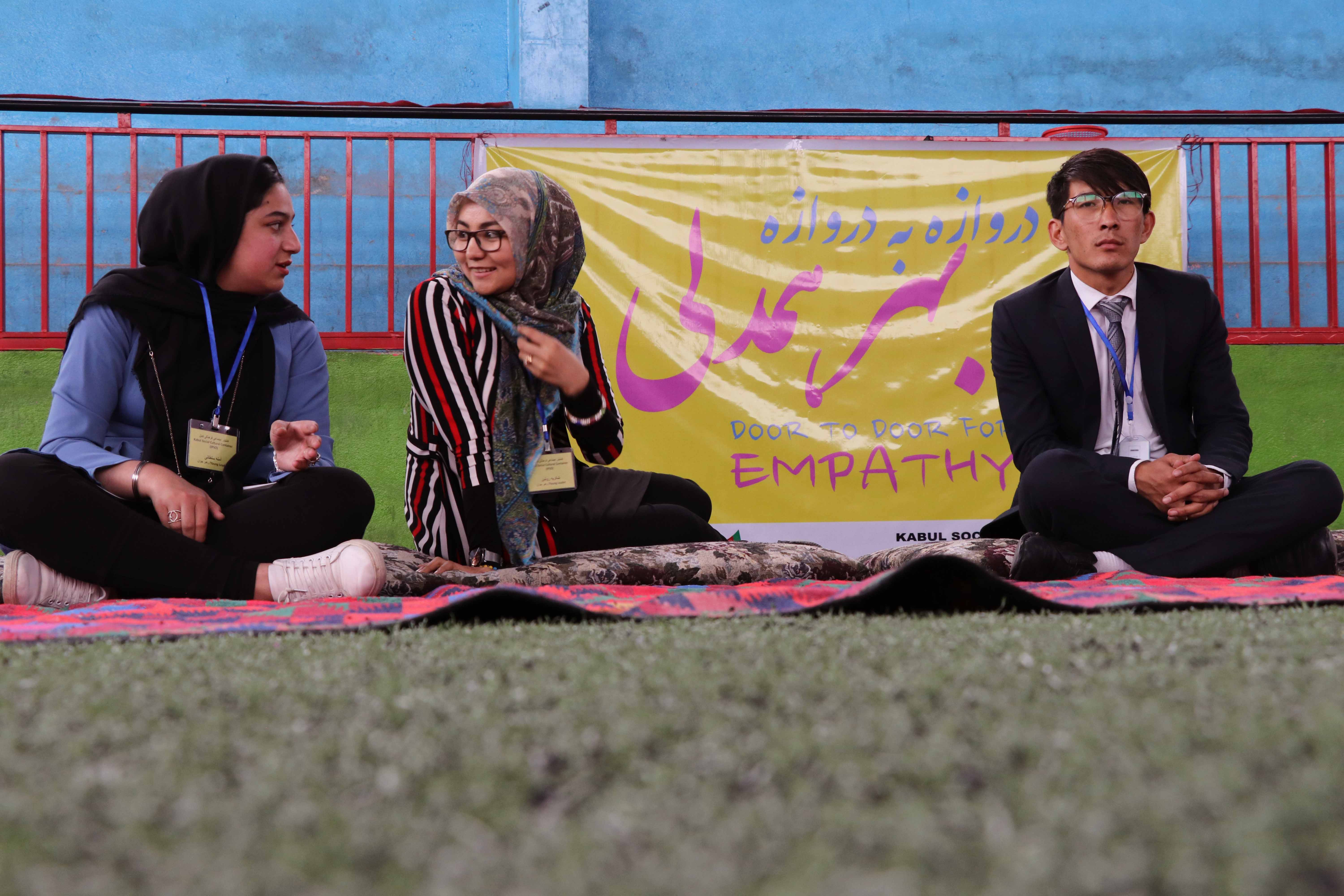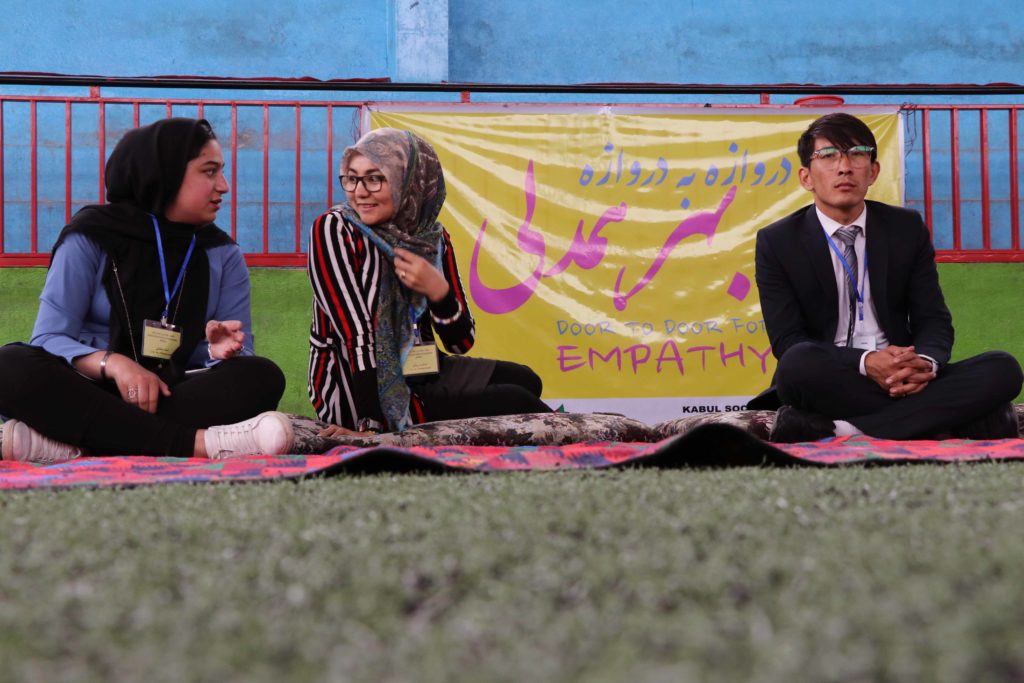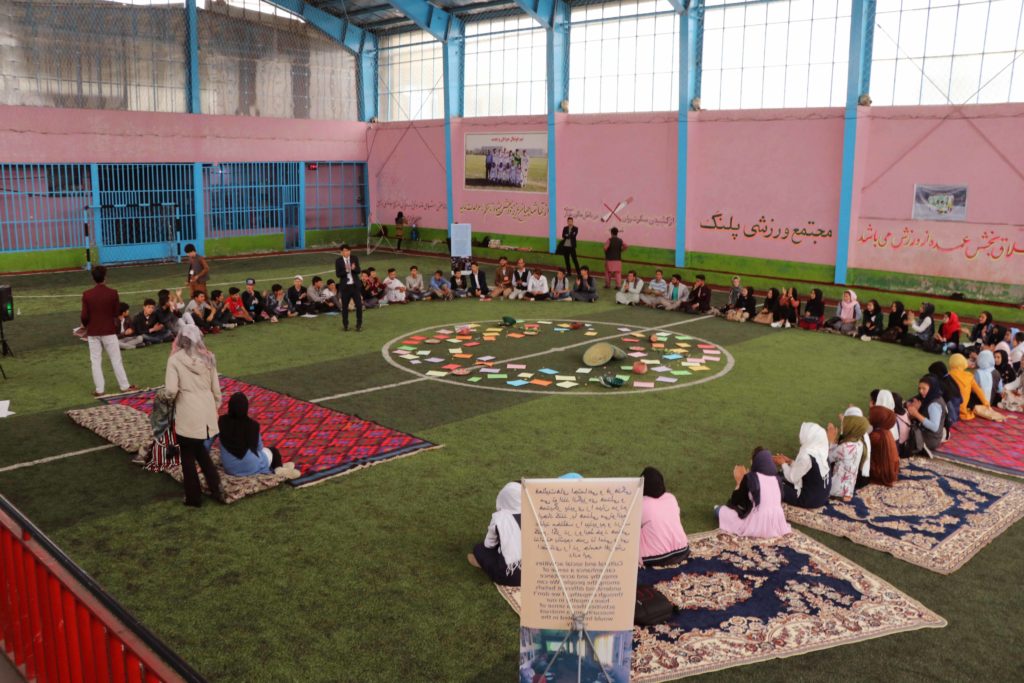“Door to Door for Empathy” is a community project designed and implemented by Abbas, Shukria, Amena and Farzad, four young leaders of IPSO’s socio-cultural container, through which they primarily strived to raise awareness about the negative consequences of violence against children in the family, to foster trust and empathetic understanding between children and parents and to promote effective verbal communications between children and parents in order to facilitate sharing of feelings and emotions at family level.
Children in Afghanistan are exposed to extreme situations of violence and abuse due to ongoing fighting, displacement, a poor economy, and harmful traditional norms and practices.
Afghan girls face early marriage, honour killings, domestic abuse, and sexual violence. Afghan boys suffer many of the same risks, along with military recruitment into armed conflict, and sexual exploitation. Both girls and boys are exposed to hazardous labour practices, and violence at home.
More civilians were killed in the Afghan conflict last year than at any time since records have been kept, according to a United Nations report by the UN Assistance Mission in Afghanistan (UNAMA) and the UN Human Rights Office (Feb 2019). The report documented 3,804 civilian deaths in 2018. Among the dead were 927 children, the highest recorded number of boys and girls killed in the conflict during a single year.
However, children are not only vulnerable on the battlefields; they are also experiencing all forms of physical or mental violence, injury and abuse, neglect or negligent treatment, maltreatment or exploitation at home which can severely impact their psychosocial well-being and development.
According to a research by Save the Children (August 2017), almost half of the children experienced at least a form of psychological violence at home, including shouting, insults, blaming for parent’s misfortune, cursing, public embarrassment, threats of abandonment, and locking out of home and approximately 30% of children experienced emotional neglect.
Lack of awareness and/or education is the primary cause of violence at home, according to the same research, followed by unemployment, drug abuse, poverty and social exclusion.
There is a lot which can be done in a family to prevent such violence and its negative physical and psychological costs as part of our self-responsibility. For instance, people having to live in such a harsh environment sometimes need to be informed about the positive side of a nonviolent environment where family members can open up to, understand and support, each other.
Abbas Ali, one of the young leaders and organizers of the project, says: “We, for the first time, gathered children and their parents together to discuss the value of empathy in the family and the ways to create it.”
“I loved this program, this is something I need to know and apply it at home, I would love to attend the next sessions too.” said Hamida, a mother who attended the first session of the community project.
“Door to Door to Empathy” had four intensive sessions bringing more than 100 children and tens of parents over the period of four weeks in Kabul.
Participants were given the opportunity to share their stories and experiences of how lack of empathy leads to more serious problems in the family such as violence and its psychological costs, such as, depression, anxiety and trauma.
“At first I was scared of being judged to share my story. But after a few sessions, I realized that these dialogues created a safe and reliable atmosphere in which everyone can talk freely about their stories, dreams, and challenges. I also heard from others about their difficulties and I learned how they had coped with them. I realized that I was not alone and that everyone was struggling with some sort of family problems. Not only did I learn from these discussions they also increased my level of understanding and tolerance.” Said Parwana, one the participants of the “Door to Door to Empathy”.
Through this program, more than 80 participants also visited the National Museum. The museum staff members provided information about the history, culture and civilization of Afghanistan to the participants. For majority of students, it was the first time that they visited the National Museum and it was a rewarding experience for most of the participants.
“I, as a kid, was always wondering as to why there has been always war in our country. Today, I learned that how lack of empathy and unity caused a lot of destructions and shed a lot of blood throughout the history of our country”, Said Ramin, one of the participants of the program.
At the end of the community project, a closing event was held to bring together all the participants and their parents to celebrate the four weeks of creating trust and empathy in the families.
“I am happy that my daughter is paying attention to her society challenges, that she now thinks about how she can inform the community ,her family, neighbors, and classmates. She consults with me and her father to find out the solution for these challenges. Now I understood very clearly that the young leader can leave a very positive impact on my and other parents’ behavior and attitude. I think myself an aware and responsible person more than before.” Mrs. Nafisa, one of the young leader’s mothers.













